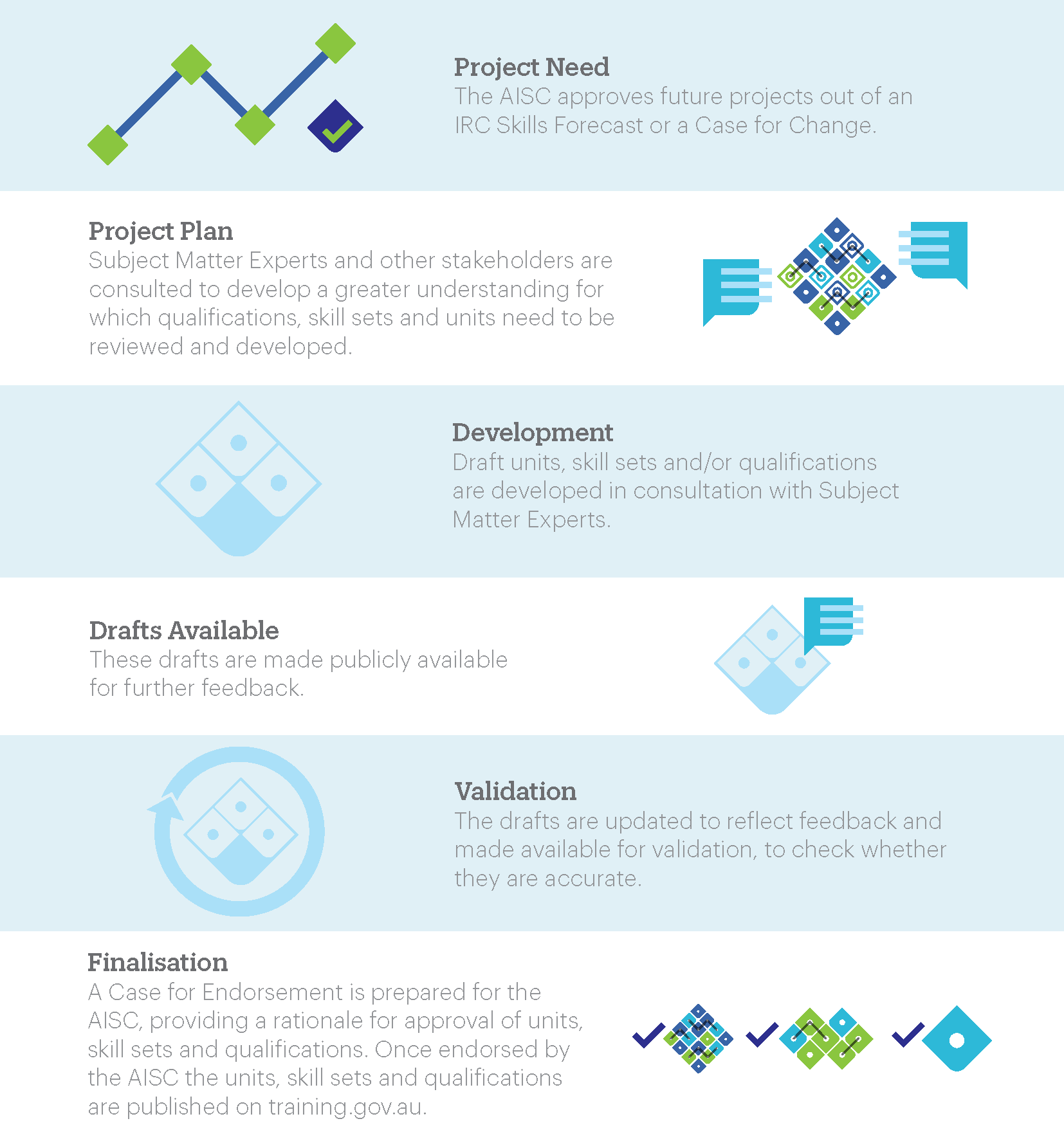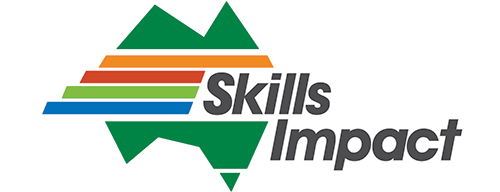Currently, many of the projects we are working on are at the ‘Validation’ or ‘Finalisation’ stage, which means the draft skills standards are getting closer to being published on training.gov.au and being available for use. At the same time, we excitedly begin work on a new round of projects which have been approved for development over the next year. You may be wondering what each stage in the project process involves and how you can be involved.
Consultation takes place at every stage of the projects, to first identify the skills gaps and then define the skills standards for that particular industry sector or job role(s), and to check whether they have been captured accurately in draft units, skill sets and qualifications.
Each project progresses through six stages – Project Need (identified in the Skills Forecast, Annual Update or a Case for Change), Project Plan, Development, Drafts Available, Validation, and Finalisation.
The Project Need is identified through consultation and research undertaken by Skills Impact, as directed by the relevant Industry Reference Committee (IRC). Your feedback throughout the year on skills needs and challenges is vital to this work. It helps define the proposed projects outlined in Skills Forecasts and Annual Updates.
During the Project Planning stage, a Subject Matter Expert group for each project is established and initial work begins on planning the logistics of each project. If you have experience in any of the skills or job roles being reviewed, we welcome expressions of interest to become a Subject Matter Expert.
The Development stage of the project sees the Subject Matter Experts helping to define and draft the skills standards and qualifications, which are then made available for broad industry consultation as part of the Drafts Available stage.
At the Validation stage, feedback from the previous round of consultation is considered by the IRC and Subject Matter Experts and is used to inform further updates to the draft skills standards, which are then made available again for checking and further comment.
Validation comments and feedback is then considered before the projects progress to the Finalisation stage. The drafts undergo a quality assurance process, including review and feedback from the State/Territory Training Authorities. They are then forwarded to the relevant IRC for consideration and sign off, before being submitted to the AISC and State and Territory Ministers. Once approved, the units, skill sets, and qualifications will be published on training.gov.au and made available for use. While this might seem like the end of the projects, it’s just the beginning, as industry will need to work with RTOs to ensure training using these new standards is accessible.
See the Skills Impact FAQ for more answers to common questions about vocational education and training.

